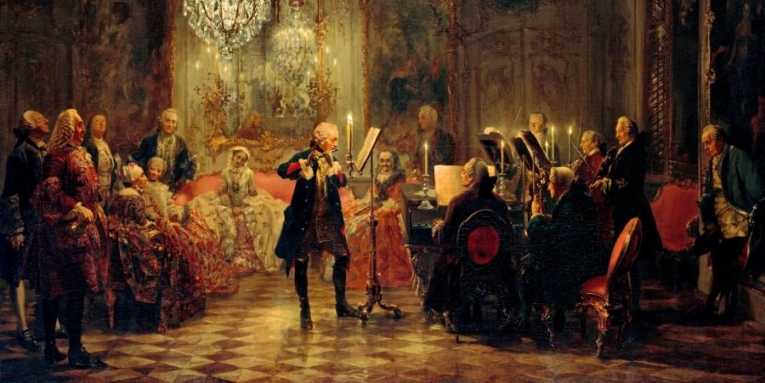Favorite Links
If It Ain’t Baroque, Don’t Fix It

Have you ever wondered what the definition of classical music is, or what period of of years it falls within? Following is a brief history of this magnificent art form reprinted from courses.lumenlearning.com.
The dates of the Classical period in Western music are generally accepted as being between about 1750 and 1820. However, the term classical music is used in a colloquial sense as a synonym for Western art music, which describes a variety of Western musical styles from the ninth century to the present, and especially from the sixteenth or seventeenth to the nineteenth. This article is about the specific period from 1730 to 1820.[1]
The Classical period falls between the Baroque and the Romantic periods. The best-known composers from this period are Joseph Haydn, Wolfgang Amadeus Mozart,Ludwig van Beethoven, and Franz Schubert; other notable names include Luigi Boccherini, Muzio Clementi, Antonio Soler, Antonio Salieri, François Joseph Gossec,Johann Stamitz, Carl Friedrich Abel, Carl Philipp Emanuel Bach, and Christoph Willibald Gluck. Ludwig van Beethoven is also regarded either as a Romantic composer or a composer who was part of the transition to the Romantic.
Franz Schubert is also something of a transitional figure, as are Johann Nepomuk Hummel, Mauro Giuliani, Friedrich Kuhlau, Fernando Sor, Luigi Cherubini, Jan Ladislav Dussek, and Carl Maria von Weber. The period is sometimes referred to as the era ofViennese Classic or Classicism (German: Wiener Klassik), since Wolfgang Amadeus Mozart, Joseph Haydn, Antonio Salieri, and Ludwig van Beethoven all worked at some time in Vienna, and Franz Schubert was born there.

Comments (0)